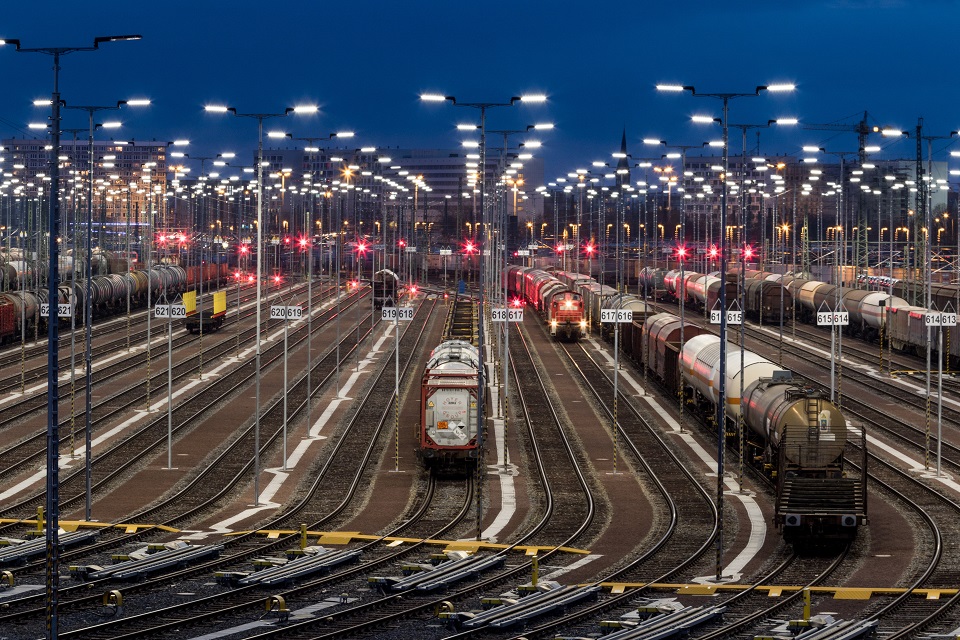New German government wants to invest in rail before road

The new German government coalition will invest “considerably more in the railways than in the roads”. The SPD, Greens and FDP presented their plans in a coalition agreement on Wednesday, including plans to lower infrastructure fees for more competitiveness, accelerate Digital Automatic Coupling, strengthen single-wagon traffic and promote combined transport terminals. Furthermore, as two of the parties proposed, Deutsche Bahn will not be split up into separate entities.
With a coalition agreement for Germany, the ‘traffic light’ parties, referring to their colours red, yellow and green, lay out their plans for the country, in which rail plays no small role. “For the first time, a coalition is committed to the principle of transport investment: “rail before road”, said Dirk Flege, Managing Director of the Pro-Rail Alliance, on Wednesday in Berlin. The non-profit Alliance welcomed the coalition agreement between the SPD, Greens and FDP as an “encouraging signal for a change in traffic”.
Rail freight on top of the agenda
The agreement focuses intensely on the enhancement of rail freight in Germany. The existing German plans for railways, as laid out in the Rail Transport Master Plan from last year, will be further developed and “implemented more quickly”. Rail freight transport should increase to 25 per cent by 2030. The target timetable of a “Deutschlandtakt” remains a goal, along with the needed infrastructure capacity. The use of rail infrastructure will become cheaper to strengthen the competitiveness of the railways, which looks like a reduction of track access charges.
On top of that, the coalition promises more. The introduction of Digital Automatic Coupling in terminals will accelerate, while single-wagon transport will see more investments. Simultaneously, it aims to provide more investment incentives for train sidings. For new commercial and industrial areas, rail connections are to be made mandatory. Combined transport terminals will also be promoted, as well as the craneability of standard semi-trailers. Finally, inward and outward journeys up to a maximum of 50 kilometres will be exempted from the truck toll.
The financing of noise remediation programmes will be improved for both federal trunk roads and railways. This will support innovative noise abatement technology, for example, for new freight wagons, until it is introduced to the market.

CO2 tax of trucks to mobility
The plans also include the introduction of a CO2 differentiation of the truck toll in 2023, including commercial road haulage from 3,5 tonnes and introducing a CO2 surcharge. This will happen under the condition that a double burden due to the CO2 price is excluded. The additional revenue will go to mobility but is not further specified in which sectors.
No splitting of DB
There were talks of a split-up of Deutsche Bahn, as the FDP and Green party proposed two models for this, but that will not be the case. The SPD, which won the most votes in the election, rejects such a reform. Deutsche Bahn AG will remain an integrated group, including the group’s internal labour market, under public ownership. The coalition does want to make DB’s internal structures “more efficient and transparent”.
The infrastructure units (DB Netz, DB Station und Service) of Deutsche Bahn AG will merge within the Group to form a new infrastructure division. Deutsche Bahn will wholly own this as the overall Group. An interesting line in the agreement is that profits from the operation of the infrastructure will remain in the new infrastructure unit in the future. Criticism focuses on the fact that since Deutsche Bahn is one company, the revenue from track access charges can be used for DB’s operations and that there is no transparency about this money flow.
The railway undertakings will continue to be run on a market- and profit-oriented basis in competition. It is also said that the coalition wants to increase the investment funds for DB Infrastructure, but how much it remains to be seen.
Also read:
- Germany: rail freight to increase 25 per cent by 2030
- ‘German government should look into split of DB Group’
You just read one of our premium articles free of charge
Want full access? Take advantage of our exclusive offer




